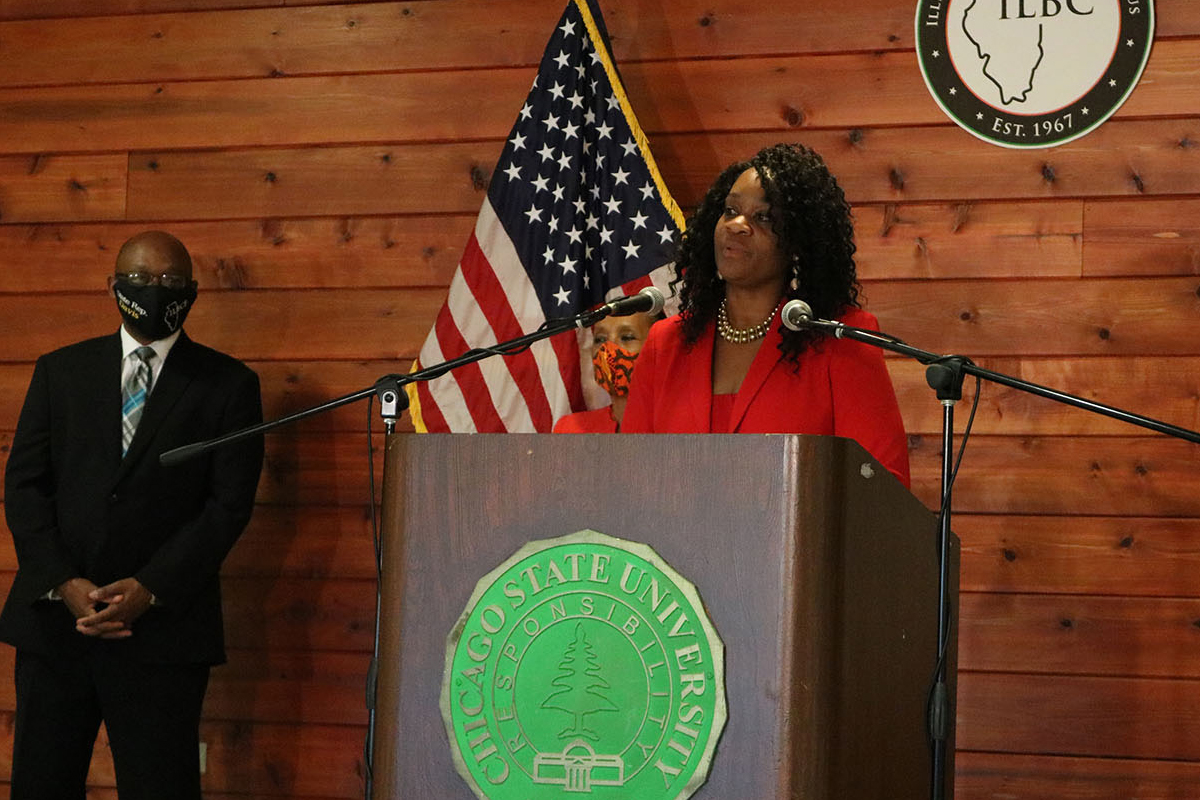
The Illinois Legislative Black Caucus held a number of hearings throughout the week to dive further into racial disparities across all sectors of life and to continue to build upon its four-pillar legislative agenda to eliminate systemic racism ahead of the fall veto session.
On Monday, Senate Public Health Chair Patricia Van Pelt (D-Chicago), Executive Chair Mattie Hunter (D-Chicago) and Health and Human Services Chair Julie Morrison (D-Lake Forest) lead a joint hearing to discuss the disparities in access to health care across racial and socioeconomic lines.
“The time it takes to reach the hospital can determine whether someone lives or dies,” Hunter said. “Safety net hospitals are the only option some Black and Brown people have, yet they are extremely underfunded and continue to be closed down. “
During the hearing, physicians and hospital executives advocated for the need of safety net hospitals, which provide patients who need emergency care with options that are nearby and affordable. However, due to lack of revenue, many of these safety net hospitals that residents depend on are closing down, including Mercy Hospital, which is expected to close in 2021.
“The system of cash bail sits at the intersection of poverty and racism,” Sims said. “Blacks and other racial minorities are more likely to be arrested by police, despite evidence showing they are no more likely to commit crimes than their neighbors. If arrested, Blacks are more likely to sit in jail awaiting trial, oftentimes for nonviolent offenses, simply because they cannot afford bail. This reality creates instability for the accused, their families and our communities. Our justice system is supposed to assume innocence until someone is proven guilty, but unfortunately it has not worked this way and for far too long has worked against people of color and the poor.”
Bail reform and police reform were both discussed specifically in regards to abolishing monetary bail and alternatives to police response/co-responder models.
In an effort to provide equitable funding and affordable models for free tuition for Illinois college students, the Senate Education and Higher Education Committees also met.
“We continue to see a trend where underfunding and budget cuts disproportionately leave Black students behind in attaining a college education,” Senate Majority Leader Kimberly A. Lightford said. “Our focus should be on ensuring that our state support is having a direct impact on closing the inequities that exist in college affordability.”
Lightford and the committees heard form a number of stakeholders, including the University of Illinois at Champaign-Urbana, the Illinois Board of Higher Education, and the Federation of Independent Illinois Colleges.
The agencies reviewed possible equitable funding models and reevaluated funding based on race and economic opportunity. The groups also discussed various funding models pertaining to free tuition, in addition to increasing the level and number of scholarships available for the Minority Teaching Initiative, which would make higher education more affordable for minority students.
The Illinois Legislative Black Caucus will continue to hold weekly virtual hearings to further examine how it can rid the state of systemic racism and give everyone the opportunities they deserve. For a full list of Senate hearings, click here.













 © 2026 Illinois Senate Democratic Caucus
© 2026 Illinois Senate Democratic Caucus